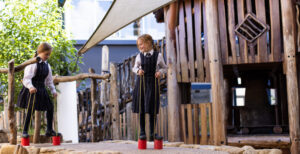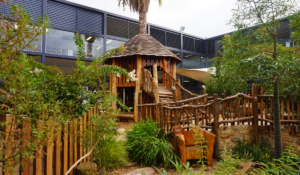Junior School
Pulteney’s Junior School (Reception to Year 6) is guided by the Reggio Emilia Approach. The Australian Curriculum is fully implemented across all eight learning areas: English, Mathematics, Science, Humanities (History, Geography, Economics and Business and Citizenship), Technology, Languages, The Arts (Music, Drama, Visual Art, Design, Dance) and Health and Physical Education. The curriculum is complemented by the National Literacy and Numeracy Learning Progressions. Whereby a students’ progression is monitored closely to ensure they receive support and tailored learning opportunities.
Furthermore, specialist programs are steered by teachers who hold a wealth of knowledge in their field, including Physical Education, Health, Performing Arts, Music, Visual and Media arts, Chinese and Technology.
At an early age, students are encouraged to take ownership of their learning pathway. The Junior School is designed to allow children to feel safe and in control of their environment so that they are confident to ask questions, challenge themselves and become passionate, creative thinkers.
Our learning environment facilitates the development of the Critical, Creative and Ethical intelligences:
Critical Intelligence involves the skills of language, mathematical and verbal reasoning, logic, memory and processing of information. These abilities are developed through a structured and focused academic curriculum, which supports and challenges all students.
Creative Intelligence involves the ability to think and act with fluency, innovation, flexibility and originality. These qualities are developed through a total curriculum that recognises each student’s special strengths and abilities.
Ethical Intelligence involves the ability to think and act with moral insight. These qualities are developed through a total curriculum, which values a spiritual perspective on life within an Anglican context.


